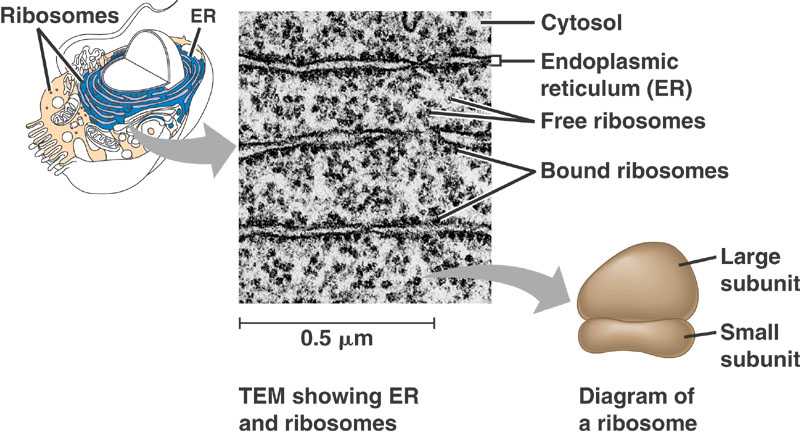How do ribosomes relate to DNA?
1 Answer
Different forms of RNA have different functions. Messenger RNA (mRNA) transcribes a segment of DNA during the first part of protein synthesis called transcription. The nitrogen bases of the mRNA are complimentary to the nitrogen bases of the segment of DNA. Every three bases forms a codon, which codes for a specific amino acid.
 )
)
The mRNA travels to a ribosome, either in the cytoplasm, or on the rough endoplasmic reticulum. Ribosomes, which are made in the nucleolus, are composed of ribosomal RNA (rRNA) and proteins. They are the location of translation, the process in which the mRNA code is translated into a sequence of amino acids.

The amino acids are carried from the cytoplasm to the mRNA at the ribosome by transfer RNA (tRNA) molecules. The tRNA contains an anticodon composed of three nitrogen bases, and pair with the mRNA, codon to anticodon.
 )
)
The tRNA anticodon is the same as the original DNA codon, except that tRNA contains the nitrogen base uracil rather than thymine which is found in DNA. In this way the original DNA code is restored, and the amino acids are placed in the correct order on the ribosome.

